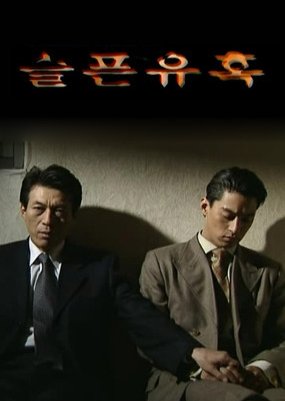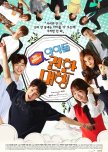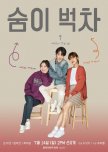
The acting was so goood all of them touched my heart
specially Joo Jin Mo !!!!!! i cried with him , he really broke my freaking heart :(
I never actually knew that he was the king in A Frozen Flower he looks so freaking diffrenet :D anyway worth to watch <3
The music was so sad but warming the heart !! i really love it so much <3
i would rewatch it but not any time soon it was really sad
Questa recensione ti è stata utile?

Heart Warming
Such a heart warming drama. This KBS special drama which was aired in the 90's. I am watching it in 2020 and wow. So well written and acted. The music is so sad and painful. God, I loved it. Kim Jab Soo, plays so many father roles in the modern dramas and I was shocked to see him play the non-straight role. So artistic. The acting is so good and Joo Jin Mo is so cute.The story is good.
The ending is so sad but so beautiful. Really wonderful final shot. Everyone should watch it.
Questa recensione ti è stata utile?
More Than a Love Story, It's About the Meaning of Love Itself
I was amazed that they made this in 1999 (ie, 25 years ago), when Korea is still so homophobic to this day. Not only that, but it was made for TV, and not a feature film. TV is always more conservative because it serves a general audience while theaters restrict the audience based on age. This makes it all the more stunning -- and impressive -- that "Sad Temptation" aired on Korean TV a quarter of a century ago.Given all this, I did not expect to see any physical contact between the leads, and was duly pleased with the one, small kiss that they did include. But what really makes the movie special is how it conveyed the men's love without physical, sexual expressions and, instead, used dialogue, eye contact, and subtle gestures to do the trick. The subway scene, for example, was so powerful that it did not even require dialogue, let alone physical touch, to portray that these men were in love.
These two men did not need to say one word out loud because they had a silent understanding that they were going to miss their stops and ride the subway to the end of the line to go to the beach. The ability to share a silent understanding with someone is a powerful testament of true love. It requires top notch acting to convey such love without any dialogue or physical contact, and these two actors were absolutely up to the task, thereby giving us splendid performances.
Now, I must confess that the leads' age difference gave me pause in my first viewing. These guys are over 30 years apart. The young one is about 25 and the older one is about 55. To me, the age disparity would've presented a bigger conflict than being the same gender. There are cultural issues when people are from different generations as these 2 men are. Then, of course, there is the issue of physical attraction (ie, people lose sexual desirability as they age).
But when I watched the movie a 2nd time, I came to the conclusion that the older man had such depth in his character that a hot-as-hell young guy could genuinely be attracted to his character, if not his looks. Moreover, the young one says he is attracted to the older one's vulnerability, and this is believable because the actor playing the older one truly does convey vulnerability -- something only an accomplished actor can do.
Overall, it was the excellence of the actors that made this movie work. The performances were deeply effective, causing me to not only care about the characters while I watched, but to continue thinking about them long after the movie credits rolled. Which is to say, it's a movie with true emotional resonance.
One reason for that resonance is that it's not strictly about homosexual love, but about all human love. It asks the viewer to examine the essence of love itself, and confronts us with the fact that love is not some fluffy, feel good extra in life but, rather, the very sustenance of life -- without which we cannot survive. This theme is expressed with a piece of dialogue in the climactic scene where the younger lead asks his beloved, "If a person can't love someone else, then how can they live in this difficult world?"
This is the sort of dialogue that could easily come off as a glib one liner in a movie where the characters have not earned the audience's respect. The beauty of "Sad Temptation" is that by time this dialogue arrives, the audience is not only emotionally invested in the characters, but takes the characters seriously on an intellectual level as well.
Highly recommended.
Questa recensione ti è stata utile?

Questa recensione può contenere spoiler
Hot Take
I like the storyline but I didn't like how it ended but I guess it was realistic at the time. I prefer a better ending.If only there was more scenes of the characters together.
The acting was good but the production wasn't. I feel like a lot could be done to make it better because the story is good but the production just didn't capture the beauty of the story.
Would I watch this again no.
Do I recommend it yes and no.
It lacked a lot but i don't completely regret watching it.
Questa recensione ti è stata utile?
Great Watch Value
I cannot say enough positive remarks about this drama. The script, acting, directing, producing, music is above and beyond beautiful. I'll be watching it a few more times. It is quite different from the bl dramas of today. Being a Korean BL (with not too much BL in it) the veteran actors were outstanding. The plot was quite original, and it left me wanting more. It's a very short drama and I wish it had a bit more of an ending than what was provided but it didn't take away from the beauty of this drama.Questa recensione ti è stata utile?

Questa recensione può contenere spoiler
The profound loneliness that homosexuals experience in heteronormative societies
'Sad Temptation' (슬픈 유혹 / Seulpeun Yuhok) reflects on the deep loneliness that homosexuals experience in conservative and heteronormative societies, through the extreme disconnection with another society, the homosexual one, and seeks to find a way to communicate beyond that disconnection. Likewise, it explores the breakdown of communication.Its plot takes us to South Korea in 1999 and follows a middle-aged man named Jung Moon Gi (Kim Gab Soo), who has distanced himself from Suh Jung Hye (Kim Mi Sook), his wife, and meets a young man. homosexual employee, Shin Joon Young (Joo Jin Mo), with whom he falls in love. Both are victims of the lack of understanding of their families and the violent and discriminatory society that excludes homosexuals. Although the two men try to take refuge in their own world, They inevitably end up falling in love with each other.
Aware that film and television content reproduces the socially and culturally idealized sexual and gender approach and that these are aimed at the consumption of the heterosexual community, Pyo Min Soo, the director, seeks with 'Sad Temptation' to make a society in need reflect. to advance against heteropatriarchal logic.
To film the first South Korean public television drama that profoundly depicted love between men, the filmmaker relied on the script by Noh Hee Kyung, a television scriptwriter and essayist, who has earned a solid reputation for his realistic, visceral portraits. and profound insights into the lives and relationships of ordinary people, captured in many family dramas and urban melodramas that have received critical acclaim and won many awards for Best Screenplay and Best Drama Writer, such as the Baeksang Arts Awards, Korean Drama Awards, MBC and KBS Drama Awards.
From the KBS network, and the third time in which the director and screenwriter work together, the audiovisual breaks with the patriarchal approach of society that still today permeates the scripts of the majority of films, series and television programs, aimed at the consumption of the heterosexual community and, in which LGBT+ people remain in the background, and are generally stigmatized and stereotyped.
Its protagonists are three people who live in solitude. The loneliness of Jung Moon Gi, a precarious man in his 40s who worked to achieve success all his life but has now been expelled from the company's management, comes from the fact that he will never be able to tell his family that he is homosexual and has to carry this burden alone.
Shin Joon Young, a man in his 20s who seems confident and ambitious in the eyes of everyone, feels the loneliness that comes with living as a homosexual in a society dominated by heterosexuals and suffering from the lack of understanding from everyone, even his family. Joon Young was hurt by all the men he loved, but they didn't love him just because he was a man.
His loneliness is contained in these heartbreaking words, addressed to Jung Moon Gi: "Coward! Men like you have no right to love or be comforted! Do you know what love is? If you feel alone, say that you are alone , and if you are going through a difficult time, say that you are having a hard time! Love is trusting and hugging each other! Like you, like my brother, suffering alone, not talking, separating from everything is not love. I wanted to touch you! I didn't ask you to have sex! I just wanted to love you! To comfort each other when we feel alone! I wanted to comfort you. If I could, I wanted to help you. live in this difficult world?"
For her part, Suh Jung Hye is the wife who, despite being a professional and with a university degree, which would give her economic independence, has been forced to spend 20 years of her life in a failed marriage watching her husband's back. . That is why he will ask you: "We are one as a couple. Isn't it true that we are separated as husband and wife?"
Why is the connection established between the man who little by little is losing his place in the world after a business failure and estrangement from his wife, and the young man who dances and drinks in bars, and in the street shouts without paying attention? pay attention to the glances of passers-by? What are the reasons for the connection between the somewhat elderly manager whom Jung Yong calls frustrated, and the free-spirited worker?
Moon Gi can see himself in his youth while looking at Jung Young, and Jung Young discovers in Moon Gi the lonely support of his older brother who, like Moon Gi, is selfish and only thinks of himself, even in the moment. of his death, or of Moon Gi's dismissal after his failure at work, which in this case would be the same, since he does not tell his wife what happened.
Jun Yuong, who enters Moon Gi's empty, routine and disconnected life with an irresistible attraction, and whether out of love or pity, falls in love with him. Moon Gi also has feelings that he cannot admit to himself, but one day he discovers himself when he sees Jun Yuong's naked torso, drunk, on his bed, and reacts by fleeing from his presence. But he is surprised when, without stopping thinking about the young man, he finds himself, the next day, wandering in front of his house.
And how does Jeong Hye come into this equation? She is curious about the worker who frequently, in her presence, names her husband, who is not interested in anything but the company. When Jun Yuong visits the couple's house and drinks tea with her, in the absence of Moon Gi, the wife discovers in the handsome young man an image of her husband of two decades.
The simple writing, but with a strong and direct tone, and the delicate and calm direction, are a perfect combination to tell the internal struggle that the two men are experiencing and the relationship between them.
In the one-act play, Moon Gi asks Jun Young, "Why did you become homosexual?" and Jun Young responds, "Why did you become heterosexual?" He then explains, "It's a question I can't answer, any more than you can answer it."
In a society that at the end of the 20th century was as homophobic and intolerant as it continues to be today, the phrase that contains the essence of the film is: "Did you marry your wife because she was a woman? It's not that I loved a man. It's just that the person I loved was a man."
With a photograph marked with dark tones that tries to demonstrate the state of mind of young homosexual love in times of so many conflicts and denials, a pertinent use of the camera and movements that accompany its intensity, make this drama a must-see for story lovers. deep and heartbreaking.
For years before, the idea of filming 'Sad Temptation' had been in the minds of Noh Hee-kyung and Pyo Min-soo. After finishing 'Lies', putting the project into action gained momentum, but they encountered numerous obstacles in translating the text on such a transgressive and unconventional topic into images. From homophobic attacks with hate speech in digital chats and messaging groups, mostly directed at the two male protagonists; Calls for censorship and non-commercialization of the audiovisual product by conservative elements of the South Korean Catholic Church, refusals by cultural institutions to grant monetary funds for the process of writing, filming, post-production and exhibition, marked the work from its beginning.
It was even difficult for the casting, as it was not easy for the actors to accept the emotions of the script, which includes a kiss between Moon Gi and Jun Young.
Pyo Min-soo later acknowledged that in particular, "the entire staff had to take a short break before filming the kiss scene. However, the actors, who were worried before filming, thinking: "Can't the kiss be given a little on the forehead or cheeks?", when the signal was given, they were caught up in the emotion and acted naturally. . Furthermore, the effort put into preparing in a short period of time is evident throughout the work.
The pressures and obstacles could not prevent the viewer from enjoying one of the most tormented passions between two men, nor could they prevent the yellow ginkgo leaves from decorating the path of the Seosamneung stud farm, where Moon Gi and Jun Young, while they walk hand in hand, they give us, at the end of the film, one of the most beautiful romantic breakups in the history of film and television.
In addition to the bittersweet taste, 'Sad Temptation' leaves us with hope, as the creators emphasize throughout the entire film that instead of suffering alone, human beings must work together to overcome loneliness, sweeping away everything that promotes it, thus denouncing to heteronormative, patriarchal and conservative societies. Not turning our backs and fleeing by withdrawing into ourselves, but defending the right to live in accordance with our dreams and passions, the sexual and loving among them, as long as they do not harm others.
Questa recensione ti è stata utile?











































